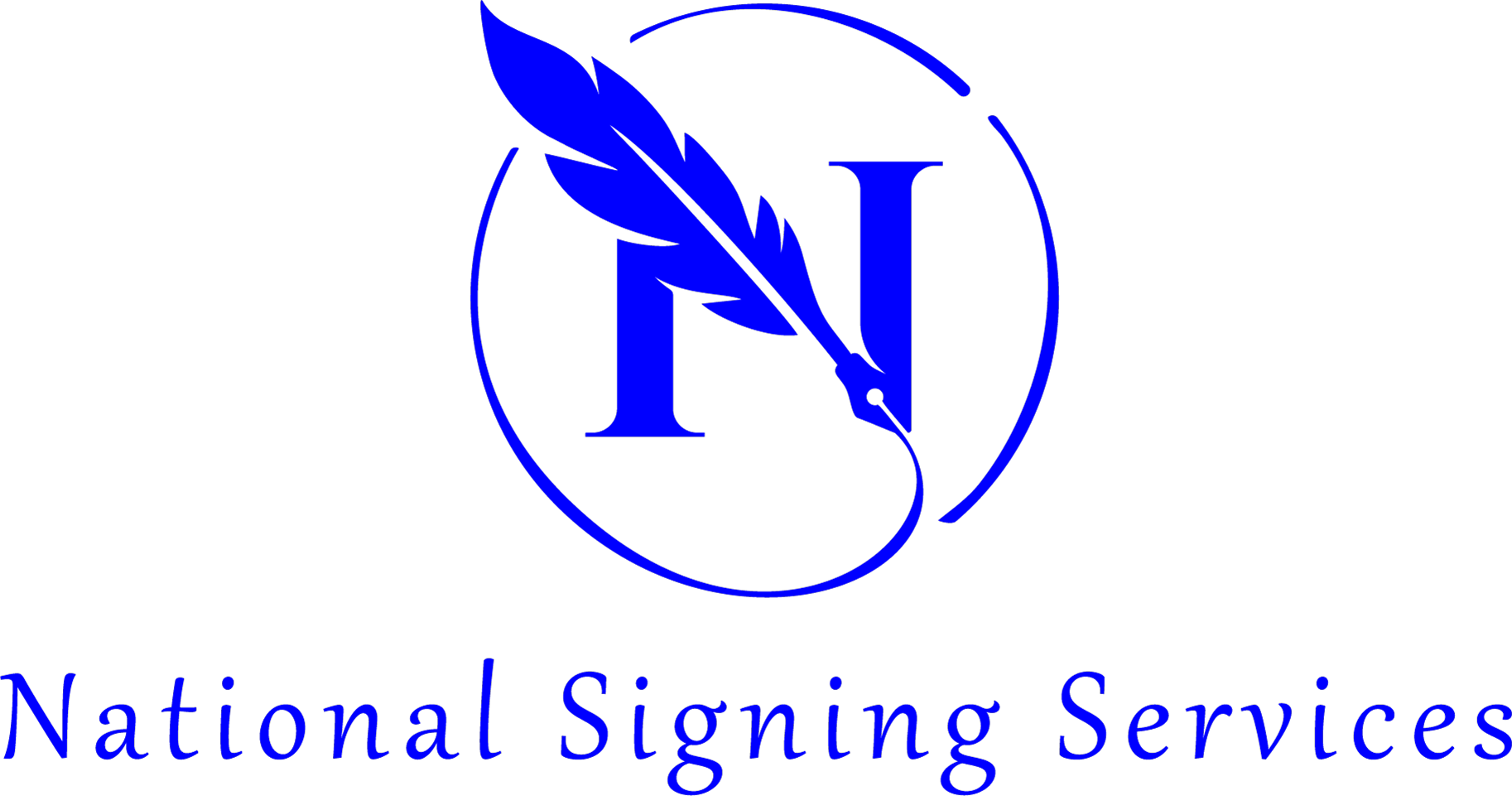Factors Affecting the Cost of Document Notarization

Document notarization is an essential process that ensures the legality and authenticity of various legal documents. It is important to note that this process comes with a price. By understanding the factors that influence notarization costs, you will be able to budget effectively and make smarter decisions. Let’s break down these costs and what you should consider when hiring a notary.
Understanding Document Notarization Costs
Notarization costs can vary widely, depending on several factors, including the type of document, the notary’s location, and the additional services you may need. By understanding what influences these costs, you can make informed decisions and avoid overpaying for necessary legal services.
What Is Document Notarization?
Document notarization is a legal process where a notary public serves as an impartial witness to verify the signing of important documents. The notary ensures that the signers are who they claim to be, that they’re signing willingly, and that the document is authentic. The notary’s stamp or seal makes the document legally binding and more credible.
This process is widely used for:
- Real estate agreements
- Loan documents
- Wills and trusts
- Power of attorney forms
- Contracts and affidavits
Why Is Notarization Important for Legal Documents?
Notarization plays a critical role in ensuring that a document holds up in legal or administrative settings. It provides:
- Proof of authenticity: Notarized documents are harder to dispute in court or other legal settings.
- Fraud prevention: By verifying identities and overseeing the signing process, notaries reduce the risk of forgery and fraud.
- Admissibility in court: Many legal documents require notarization to be accepted as evidence in judicial proceedings.
Key Factors Influencing Notarization Costs
The cost of document notarization isn’t one-size-fits-all. Multiple factors can influence the price, and understanding these can help you choose the best option for your needs. By analyzing these factors, you can make more strategic choices when selecting a notary service and potentially reduce your overall costs. Let’s dive deeper into these elements to understand how they impact fees.
Location-Based Variations in Notary Fees
Where you’re located significantly affects notarization costs. Urban areas generally have higher fees due to the cost of living and demand for notary services. These areas often have higher concentrations of legal activity, driving up prices. In contrast, rural areas may offer lower fees due to reduced demand and overhead costs for notaries. State-specific regulations may also play a significant role. Some states cap notary fees to protect consumers from overcharges. Here are examples:
- New York: Limits notary fees to $2 per signature, making it one of the more affordable states.
- California: Allows notaries to charge up to $15 per signature.
Understanding how location influences pricing can help you decide whether to choose a local notary or explore options like online services, which may bypass regional cost disparities.
Document Type and Complexity
The type and complexity of the document being notarized can influence the cost. Simple documents, such as affidavits or acknowledgments, typically involve straightforward verification, keeping fees low. On the other hand, complex documents like real estate deeds, loan agreements, or estate planning paperwork demand more time and attention from the notary. These types of documents often require:
- Detailed Verification: Ensuring the accuracy of all parties’ information.
- Additional Effort: Reviewing supporting documentation or cross-checking details.
- High Responsibility: Notaries may need to double-check legal and financial implications, increasing their liability.
For example, notarizing a real estate transaction may involve reviewing multiple pages of legal jargon and verifying the identities of several parties, leading to higher fees. Understanding the complexity of your document beforehand can help you anticipate costs and choose the right notary service for the job.
Expertise and Experience of the Notary
Experienced notaries with specialized skills or knowledge in areas like real estate, corporate law, or estate planning often charge higher fees. Their expertise ensures that every detail is handled accurately, reducing the risk of errors that could invalidate a document or lead to legal issues. While it might seem costlier upfront, investing in a notary with specific expertise can save you time and money in the long run. Here’s why expertise matters:
- Accuracy: Experienced notaries are less likely to make mistakes, ensuring your document’s validity.
- Complex Transactions: They’re better equipped to handle intricate paperwork, such as property deeds or multi-party agreements.
- Risk Mitigation: Their understanding of legal nuances reduces the likelihood of disputes or challenges later.
Additional Services, Such as Mobile and Online Notarization
Some notaries offer added convenience through mobile and online notarization services. These services are designed to accommodate clients who can’t visit a notary’s office or prefer a more flexible approach.
- Mobile Notarization: Mobile notaries travel to your location, providing convenience for clients with limited mobility, tight schedules, or urgent needs. The added travel fees may include a flat rate, a per-mile charge, or an hourly rate for the notary’s time.
- Online Notarization: E-notarization is a growing trend, especially useful for people in remote areas or those needing quick service. Using secure platforms, online notaries can verify your identity and witness document signing via video calls. Though slightly more expensive, this option saves time and eliminates geographical barriers.
State Regulations and Fee Caps
Knowing your state’s regulations can help you avoid overpaying. If you’re uncertain, consult your state’s notary commission or seek advice from a reputable service to ensure compliance with local laws while providing expert notary services.
State laws heavily influence notary fees, ensuring fair pricing and consumer protection. Many states set maximum fees for specific notarial acts, which notaries are legally required to follow. These caps vary widely:
- Low-Cap States: New York limits notary fees to $2 per signature, making it a cost-effective state for notarization.
- High-Cap States: States like California and Texas allow up to $15 per signature, reflecting their higher cost of living and legal demand.
Common Types of Notary Fees
Understanding the different types of fees can help you plan better. Let’s explore the most common ones:
Basic Notarization Fees
This is the standard fee for verifying identities, witnessing signatures, and applying the notary seal. For many documents, this is the primary cost.
Travel Fees for Mobile Notaries
If you opt for a mobile notary, travel fees will be added. These fees can vary based on:
- Distance traveled
- Time spent commuting
- Any additional effort required
Electronic Notarization (E-Notary) Costs
Online notarization offers flexibility and convenience but often costs slightly more. You’ll pay for the technology platform used, along with the notary’s service fee.
Copy Certification Fees
If you need certified copies of documents, there’s an additional charge. This service is commonly used for:
- Passports
- Birth certificates
- Academic records
Tips for Managing and Reducing Notary Costs
Notarization doesn’t have to break the bank. One effective way to manage costs is to compare fees from different notaries, as prices can vary even within the same area. Shopping around can help you find a notary who offers reasonable rates without compromising on service quality. If you have multiple documents to notarize, try to batch them into a single session. Many notaries provide discounts for bulk notarization, saving you both time and money.
Another cost-effective option is to opt for online or in-office notarization. Online notarization often eliminates travel fees, while in-office notarization is convenient if the notary is located nearby. Planning ahead is equally important—last-minute requests can incur extra charges, so scheduling in advance can help you avoid urgency fees. You can also check if your employer or local community centers offer free or discounted notary services, as these can be valuable resources for reducing expenses.
Choosing the Right Notary Service
With so many options available, it’s important to choose a notary service that fits your needs. The process of notarization involves trust and accuracy, so selecting the right notary can save you time and potential legal issues.
Evaluating the Notary’s Qualifications and Credentials
A reliable notary should be both licensed and experienced. Verify their credentials and ensure they meet your state’s requirements. Beyond that, consider checking online reviews and testimonials or asking for references from previous clients. This step ensures you’re working with someone who has a proven track record of professionalism and reliability. For specialized documents, such as real estate or business contracts, look for a notary with expertise in those areas to minimize errors.
Balancing Cost and Convenience in Service Selection
Choosing the most convenient notary service doesn’t always mean opting for the cheapest one. For instance, mobile notaries bring the service to your location, which can be invaluable for busy professionals or individuals with mobility challenges. Online notarization is another excellent option for those seeking quick, remote solutions. Assess your priorities and budget to find a service that meets both your logistical and financial needs.
For high-quality and reliable notary services, consider consulting National Signing Services. Their team offers a wide range of professional notaries for various needs, including mobile and remote options. Whether you require a notary for a single document or multiple transactions, their network ensures accessibility and trustworthiness, making them a go-to choice for streamlined notarization services.
Conclusion
Understanding the factors that influence document notarization costs can help you make informed decisions. By considering location, document type, additional services, and notary expertise, you can find a service that fits your budget. Don’t forget to explore options like online notarization or community resources to save money. With the right planning, notarizing your documents can be a smooth and affordable process.











